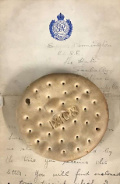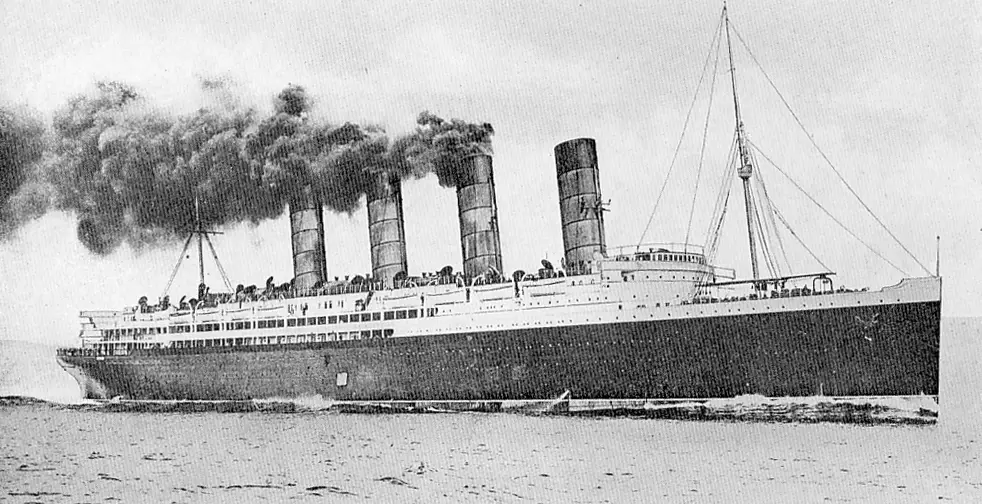|
Hardtack That Survived Lusitania Sinking Up for Auction
April 8, 2019
A hardtack cracker that survived the 1915 sinking of the ocean liner Lusitania is up for auction. The cracker, or biscuit as such things are known in the United Kingdom and current and former members of its commonwealth, comes with a note written by the British soldier who found the biscuit, in a lifeboat that took some survivors of the ocean liner's sinking to Ireland, to what is now Cobh but what was then Queenstown. Henry Aldridge and Son will do the auctioneering. The pre-sale estimate of the biscuit is a range from $3,920 to $6,533. The biscuit is one of only two known to still exist, the auction house said, adding that the other is on display in a museum in Ireland. The note that accompanies the biscuit, written by a member of the Royal Engineers, reads, "I suppose these biscuits are put in the lifeboats to feed the people aboard her, in case they are a great distance from land or being adrift for many days,” the soldier wrote. “In these boats at Queenstown they found brooches, rings, watches & chains belonging to the survivors. There are also a great many life belts that the survivors wore. I have been in the boats and they hold something like fifty persons." Hardtack biscuits, also called sea biscuits, ship biscuits, and pilot bread, were food staples on long journeys and in wartime. Made from flour, salt, and water, the biscuits were made to last. A German U-boat torpedoed the ocean liner on May 7, 1915. The torpedo struck the ocean liner on the starboard side, just behind the bridge; and the huge boat sank in just 18 minutes. In all, 1,195 passengers and crew drowned. More than 100 of these were American. The rest were Britons and Canadians. Lusitania had 48 lifeboats, but the crew managed to lower only six successfully. Many people ended up in the water, which was very cold; and many people died in the water, before help arrived. |
Social Studies for Kids |
Social Studies for Kids
copyright 2002–2024
David White






